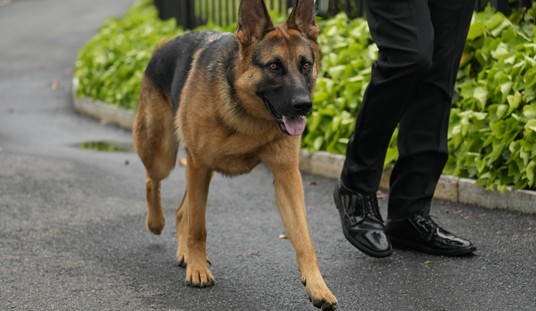“Shoot first, ask questions later” in the old Westerns referred to a hothead who assumed that everyone he encountered was an enemy, and was ever-ready to strike out against those enemies, even before he had adequate information. The phrase has passed into the national argot as an appellation for someone who is touchy, angry, insecure, paranoid, and reckless – but in light of some of its most recent manifestations, it should now be revised to “behead first, ask questions later.”
The first came last Thursday, when jihadists from the Islamic State of Iraq and Syria announced that a recent beheading they had triumphantly filmed and posted online was, well, a mistake. They had claimed that the head, which the killers had exultantly brandished before the camera and the cheering crowd, belonged to a member of a Shi’ite group fighting to defend the Assad regime, but someone who saw the video recognized it as having once rested on the shoulders of Mohammed Fares, a fellow Sunni jihadist and ally of those who murdered him.
The second came from India on Friday, when a man was acquitted of blasphemy charges that had been originally brought against him in 2010. T.J. Joseph, a teacher and a Christian, was accused of including questions that insulted Muhammad on an exam that he gave to his students at Newman College. Members of an Islamic supremacist group, the Popular Front of India, got wind of Joseph’s exam and made the blasphemy accusation, whereupon Joseph was inundated with threats. Finally, a Muslim mob attacked Joseph and cut off his right hand and part of his arm. Newman College, seeing the way the wind was blowing, followed in the footsteps of centuries of cowardly academics and fired Joseph, canceling his pension.
But now Joseph has been acquitted of the charges. Can he have his arm back? Of course he can’t, any more than Mohammed Fares can have his head back. Both are victims of the “shoot first, ask questions later” mentality that is so prevalent among Islamic jihadists and supremacists. They are so anxious to prove their fearsome power, so avid to display their eagerness to defend – at the point of a sword – all that they hold dear, that like the restless, reckless tough guys of the Wild, Wild West (and so many other places), they act without any regard for reason, judgment, prudence or justice.
Ultimately, this bespeaks a deep insecurity – an insecurity of yawning, chasm-wide proportions. The people who murdered Mohammed Fares and mutilated T.J. Joseph are, deep down, not really sure they’re men at all, and thus have to demonstrate that they are at every opportunity. They have a caricatured view of masculinity that identifies it with brute force and the will to power, and think that if they hesitate to slam down hard on every manifestation of opposition and dissent to that which they think they represent, they will be shown up as weak, unmanly, unworthy of respect.
The same phenomenon manifests itself in the general response of Islamic supremacists to the foes of jihad, and of Leftists to conservatives. When Muslim writer Reza Aslan’s book deconstructing the New Testament narrative of Jesus hit the bestseller lists, it was revealed that Aslan (whose “moderate” image is belied by his membership on the Board of the National Iranian American Council, which has been established in court as a lobbying group for the Islamic Republic of Iran) was not the follower of the true Jesus that he claimed to be, but an immature twerp who heaped adolescent abuse on those who dared to challenge him, rather than engage them intellectually.
Aslan’s puerile tongue-lashings are the Western “moderate” counterpart of the reckless hatred and violence displayed by Fares’s killers and Joseph’s attackers. His immature abuse and inability to deal rationally with criticism betray a desire to paper over with braggadocio and swagger the knowledge that he is not a man, but a boy — like his “behead first, ask questions later” coreligionists. They share the same insecurity and concomitant desire to overcompensate for weakness with reckless displays that attempt to mimic real strength but do not actually demonstrate it.
That insecurity is also manifested in the Organization of Islamic Cooperation’s ongoing efforts to compel Western nations to criminalize criticism of Islam. It is not the strong, but the weak, who can brook no criticism or contradiction, and must stamp it out by force. It is not masculinity, but the counterfeit thereof.













Join the conversation as a VIP Member